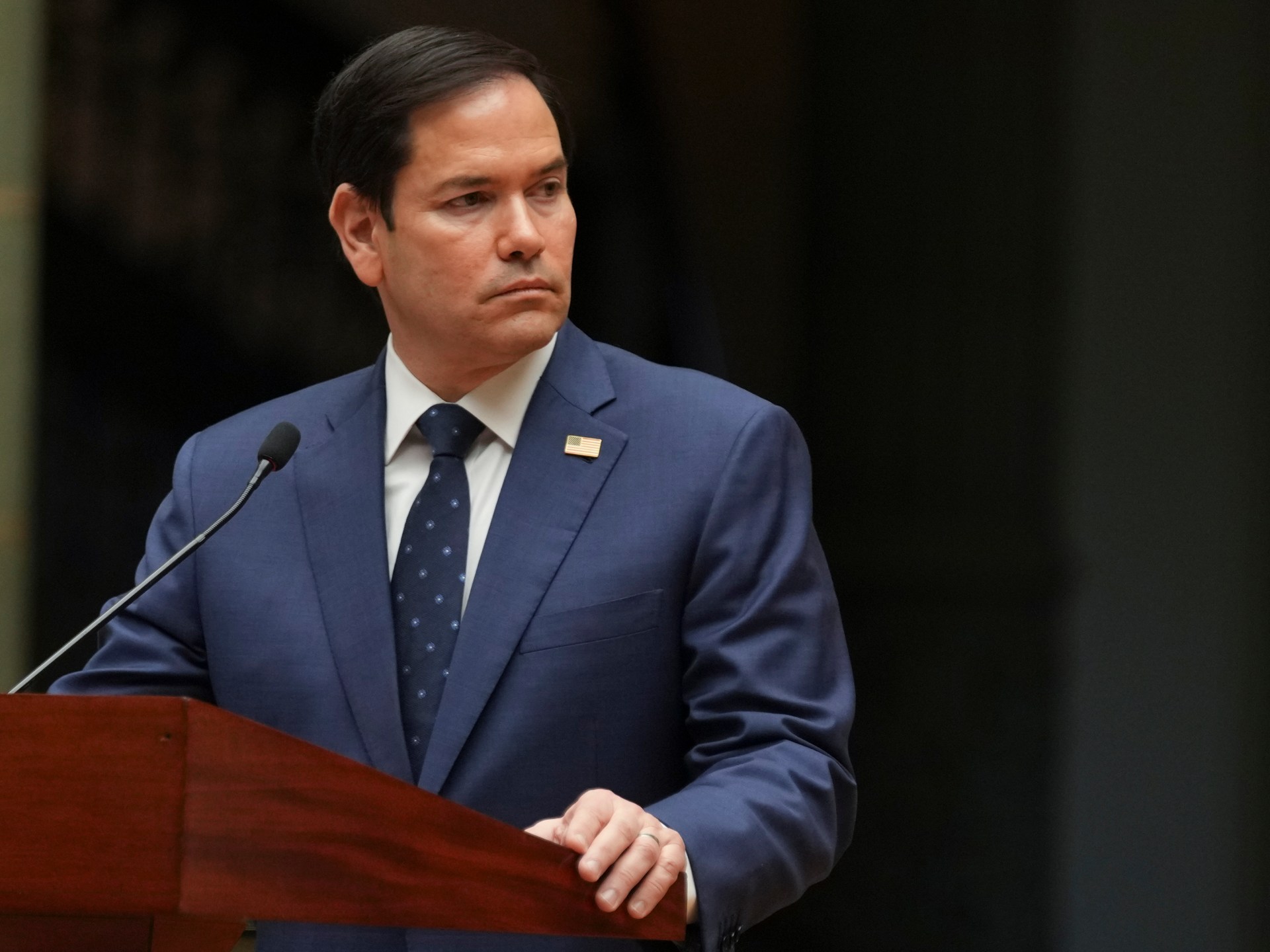Due to a growing row between Washington and Pretoria over a contentious land expropriation law, US Secretary of State Marco Rubio has declared he will not participate in Group of 20 (G20) discussions in South Africa.
Following US President Donald Trump’s threat to cut aid to South Africa due to the passage of legislation that allows the seizure of land without compensation in some circumstances, Rubio made his announcement on Wednesday.
South Africa, which holds the G20 presidency until November 2025, is set to host a meeting of foreign ministers from February 20-21 in Johannesburg.
“South Africa is doing very bad things. Expropriating private property. Using G20 to promote ‘ solidarity, equality,]and] sustainability. ‘ In other words: DEI and climate change”, Rubio said in a post on X.
“My job is to advance America’s national interests, not waste taxpayer money or coddle anti-Americanism”.
I will NOT attend the G20 summit in Johannesburg.
South Africa is doing very bad things. Expropriating private property. Using G20 to promote “solidarity, equality, &, sustainability”. In other words: DEI and climate change.
My job is to advance America’s national interests, not…
Rubio’s announcement was greeted with dismay by critics of the Trump administration.
In a post on X, Andrew Bates, who was the senior deputy press secretary for the White House under former US President Joe Biden, wrote that “this show of weakness harms our national security and economy while benefiting China.”
“If you’re not at the table, you’re on the menu”.
Trump blasted South African President Cyril Ramaphosa on Monday, causing Pretoria to respond with a rebuttal.
Ramaphosa claimed that the law was a “constitutionally mandated legal process” that would give the public “equitable and just” access to land. It was not a “confiscation instrument.”
The government may seize land without compensation under the law that Ramaphosa signed last month, such as when there is “just and equitable and in the public interest” or when there is “a property that is not being used and there hasn’t been a chance to reach an agreement with the owner.
The legislation, which was necessary to reduce the enormous landownership gaps brought on by the racist system of apartheid, has been defended by Ramaphosa and his African National Congress.
According to the law, the government has not yet expropriated any land.
The Democratic Alliance (DA), South Africa’s main opposition party and a member of the ANC-led national unity government, has opposed the law, warning that it undermines property rights and could scare off foreign investment.
However, the DA, which draws most of its support from white, Indian and Coloured (multiracial) South Africans, has expressed “deep concern” about Trump’s threat to cut aid and said it is a misconception that land can be seized “arbitrarily”.
Due to the history of Black people being raped off their lands and denied access to property, land ownership is a sensitive and contentious issue in South Africa.
Despite accounting for over 80% of the country’s population, Black South Africans only own 4% of privately held farmland, according to a 2017 government audit.
White South Africans, who are mostly descended from British and Dutch settlers, hold about three-quarters of the land despite making up a little more than 7 percent of the population
Trump’s threat to cut funding for the African nation comes as his administration has slowed the flow of almost all foreign aid and placed the majority of USAID staff members on administrative leave.
Source: Aljazeera

Leave a Reply